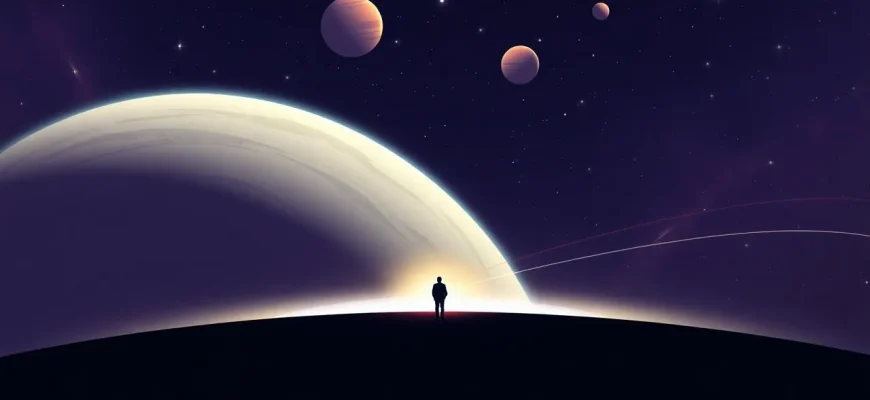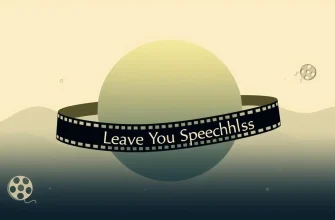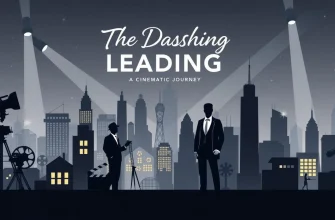This collection of films delves into the vast expanse of the universe, exploring themes of space exploration, cosmic phenomena, and the human quest to understand our place in the cosmos. These movies not only entertain but also inspire curiosity about the mysteries of the universe, making them valuable for anyone interested in science, adventure, or simply the beauty of the unknown.
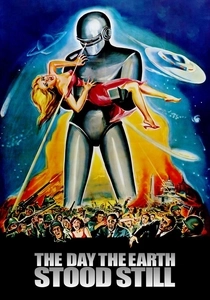
The Day the Earth Stood Still (1951)
Description: An alien visitor arrives on Earth with a warning about humanity's behavior, offering a unique perspective on our place in the universe and the potential for interstellar communication.
Fact: The film was one of the first to use the theme of extraterrestrial visitation as a means to critique human behavior.
 Watch Now
Watch Now 
2001: A Space Odyssey (1968)
Description: Stanley Kubrick's masterpiece examines human evolution and the potential of space exploration, with its iconic scenes of space travel and the enigmatic monoliths.
Fact: The film's special effects were groundbreaking for their time, and it was one of the first to be shown in 70mm Cinerama.
 Watch Now
Watch Now 
Apollo 13 (1995)
Description: This film recounts the real-life Apollo 13 lunar mission that went wrong, showcasing the ingenuity and resilience of astronauts and NASA in the face of cosmic adversity.
Fact: The film was praised for its accuracy, with real astronauts and NASA personnel consulting on the project.
 Watch Now
Watch Now 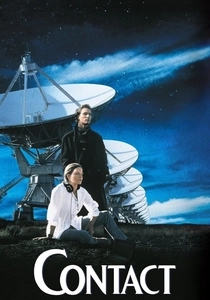
Contact (1997)
Description: Based on Carl Sagan's novel, this movie explores the first contact with an extraterrestrial civilization, delving into themes of science, faith, and the search for meaning in the universe.
Fact: The film features real scientists like Carl Sagan and Ann Druyan, who were involved in the production to ensure scientific credibility.
 Watch Now
Watch Now 
Event Horizon (1997)
Description: This horror sci-fi film involves a spaceship that has disappeared into a black hole and returned with something sinister, exploring themes of space travel and the unknown horrors of the universe.
Fact: The film was initially conceived as a haunted house story set in space, with the ship itself being the "haunted house."
 Watch Now
Watch Now 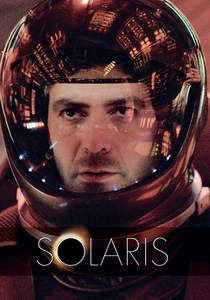
Solaris (2002)
Description: Steven Soderbergh's adaptation of Stanislaw Lem's novel explores the psychological effects of space travel and the mysteries of a sentient planet, Solaris.
Fact: The film uses minimal special effects, focusing instead on the psychological and emotional aspects of space exploration.
 Watch Now
Watch Now 
Star Trek (2009)
Description: J.J. Abrams' reboot of the classic series focuses on the formation of the Starship Enterprise crew, exploring themes of exploration, friendship, and the vastness of the universe.
Fact: The film was the first in the franchise to be released in IMAX, providing an immersive experience of space.
 Watch Now
Watch Now 
Interstellar (2014)
Description: Christopher Nolan's epic science fiction film explores a team of astronauts traveling through a wormhole in search of a new home for humanity, showcasing the vastness and complexity of the universe.
Fact: The film was inspired by Kip Thorne's theories on wormholes and black holes, and he served as an executive producer to ensure scientific accuracy.
 Watch Now
Watch Now 
Gravity (2013)
Description: This film captures the harrowing experience of an astronaut stranded in space after her shuttle is destroyed, offering a visually stunning depiction of Earth's orbit and the universe beyond.
Fact: Most of the film was shot in a custom-built rig to simulate zero gravity, and it was one of the first films to use high frame rate technology for certain scenes.
 Watch Now
Watch Now 
The Martian (2015)
Description: Based on Andy Weir's novel, this film follows astronaut Mark Watney, who must survive alone on Mars after being left behind by his crew, highlighting human ingenuity against the backdrop of the universe.
Fact: NASA provided technical assistance for the film, ensuring the portrayal of Mars and space travel was as realistic as possible.
 Watch Now
Watch Now 
